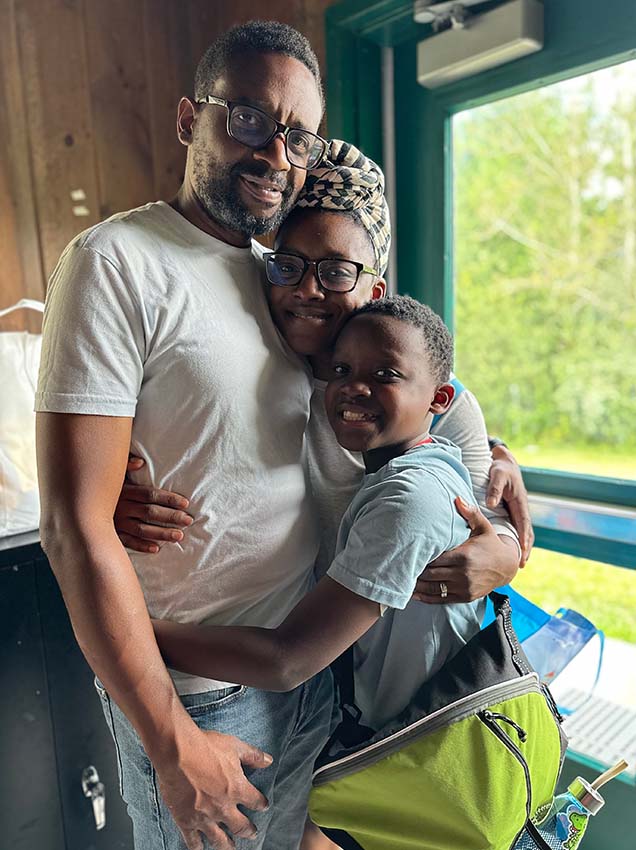Preparing for Camp Surefire
Going away to camp for the first time is exciting, but it can be an emotional transition for both the camper and their parent/guardian. Here are a few ideas to help prepare your camper for their overnight experience at Camp Surefire.
1. Talk about Camp
Start conversations about camp well before camp drop-off. Discuss what types of activities they might participate in and the new friends they’ll meet. Attending Open House is a great way to familiarize your camper with the environment and what to expect.
2. Encourage Independence
Foster your child’s independence before camp starts. Practice skills they’ll need at camp, like making their bed, organizing their belongings, and basic hygiene practices. Campers are expected to keep track of their things, get out of the cabin in a timely manner, and make food choices at mealtime. If your child is used to taking baths at home, have them start practicing taking a shower and washing their own hair. Encouraging these habits early can make the transition to camp life smoother and help your child feel more confident in their ability to care for themselves.

3. Address Worries
It’s natural for children to feel nervous or have concerns about being away from home. Listen to their fears and acknowledge their feelings. Discuss coping strategies, such as keeping a journal, writing letters home, or talking to a camp counselor. Knowing there are ways to deal with homesickness can be reassuring. Avoid making the promise to pick them up if they aren’t liking camp. Your confidence in their ability to make it through the program will translate to their own confidence.
4. Pack Together
Involving your child in the packing process can help them feel more prepared and in control. Check the camp’s packing list together and make it a fun activity! Packing comfort items like photos, favorite books, and stuffed animals will give them a safety net they are familiar with.
5. Set Communication Expectations
Talk about how you will not be able to text / call during their time at camp. Honestly, this is much harder on the parents/guardians than it is on the campers. The campers are kept busy making new friends and enjoying different fun activities.
6. Practice Being Technology-Free
Review the cellphone policy with your camper and start easing them away from technology a few weeks before camp week. If applicable, add the Dexcom widget to their phone’s lock screen so they are familiar with how it looks and functions. Campers will not be able to use their phones (for calling/texting/gaming/etc).
7. Practice Overnight Stays
If your child has never spent a night away from home, consider arranging a few overnight stays with relatives or friends before camp starts. This can help them get used to being away from home and understand that they can have a good time, even when they’re not in their own bed.
8. Focus on the Positive & Provide Reassurance
Highlight the fun aspects of camp, like making new friends, learning new skills, and participating in activities they enjoy. Focusing on the positive aspects can help build excitement and overshadow any nerves they may be feeling. Let your camper know that having mixed emotions about camp is normal!
9. Schedule Something Fun
We know this is hard for first year parents/guardians, but we encourage you to plan something fun while your camper is safe and having fun at Camp Surefire! Perhaps you will plan a date night with your partner or plan a special adventure with your non-T1D kiddo. We know being taken off the “follow” app is a hard transition, but we hope you can catch your breath a little and know that your camper is in good hands!
10. Celebrate Success
At the end of camp week, your camper will be exhausted and ready for their own bed. They will also be excited to tell you about their new friends, the different foods they tried, and some of the fun activities that they did at camp. Be sure to check out the camp photo album together as the pictures will prompt your camper to provide you with more details about different highlights of their week!
